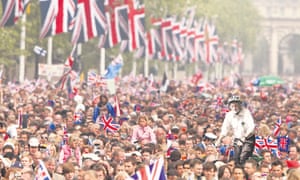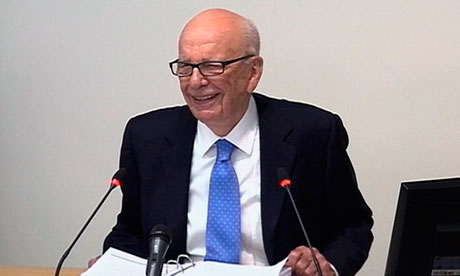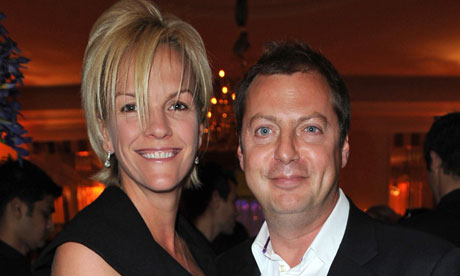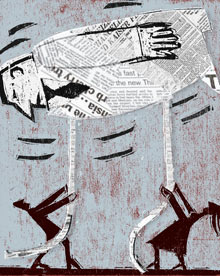Thursday 7 May 2020. The polls have closed and, to general astonishment, a BBC exit poll is predicting a narrow victory for Jeremy Corbyn’s Labour-Liberal Democrat-Green alliance.
From the outset, it is clear that there has been a huge increase in turnout among the young and the disaffected. As one commentator puts it: “Generation Rent appear to be taking their revenge on middle England.”
As usual, Sunderland South is the first seat to declare, less than an hour after polls close. Unsurprisingly, the Labour candidate is returned, but the swing is modest, causing commentators to suggest that perhaps the exit poll is mistaken.
The first sign that the earth is about to change places with the sky comes just after midnight when Labour begins picking up home counties seats it hasn’t held for a decade. Ipswich, Harwich, Harlow, Dover, the Medway towns and Plymouth Sutton fall in quick succession. Two Brighton seats and one in Bristol go Green, along with the hitherto safe Tory seat of Totnes.
At dawn, the result remains unclear. Most of the traditional Tory strongholds have held firm. In Surrey, Sussex, Hampshire and North Yorkshire, Tory MPs are returned with increased majorities. The outcome hangs on what happens in the 40 seats in which Labour, the Liberal Democrats and the Greens have agreed not to oppose each other.
2am: All eyes are on Islington. Upper Street has been blocked since early evening by crowds chanting “Jeremy, Jeremy” and “Jez we can”. Of the Bearded One, there are only intermittent glimpses: at the declaration of his own result and, later, when he appears on the steps of Islington town hall. His demeanour, as ever, is downbeat and, as is his habit, he joins in the applause. “We must await events,” is all he says, before disappearing back inside. A large screen outside the town hall relays the results. The cheering and the chanting intensify with each new gain. By dawn, a delirious crowd is blocking the entire street from Highbury Corner to the Angel tube station. Large screens relaying the results have been erected at intervals along the entire length of the street. The atmosphere is more Glastonbury than Islington.
Meanwhile, commentators who only hours earlier had been predicting a Labour meltdown are now opining knowledgably on the causes of the earthquake. There is general agreement that the Tories overdid austerity. The collapse of just about all non-statutory services, the outsourcing of parks, the boarded-up theatres and youth clubs and the sporadic outbreaks of inner-city rioting have finally triggered a political backlash beyond the Labour heartlands. That, plus the growing realisation that an entire generation of young people have been priced out of the housing market by overseas investors and ruthless buy-to-let landlords.
There is general agreement, too, that attempts by the Tories and their tabloid friends to paint Corbyn as an agent of Hamas and Hezbollah have spectacularly backfired. Not least as a result of the revelation that MI6, with ministerial approval, has been talking to Hamas all along.
The tabloid press has gone bananas. “BRITAIN VOTES FOR LUNACY”, screams the Sun, without waiting for the final result. “STARK RAVING BONKERS” is the Mail’s considered opinion. The broadsheet press is only mildly less hysterical. The front page of the Telegraph is headed “CIVILISATION AS WE KNOW IT: THE END”. There is much talk of assets being evacuated. Florida seems to be the preferred destination.
From Chelsea to Chorleywood come reports of panic buying. Cue TV cameras panning empty shelves in the King’s Road branch of Waitrose.
Only on Friday morning, when the rural results come in, is the outcome clear. Former Lib-Dem strongholds in Devon, Cornwall and Northumberland have returned to the fold, along with Richmond Park and Twickenham, which declared overnight. Corbyn’s controversial decision not to contest these seats has paid off.
By noon, it has become clear to everyone that Corbyn is in a position to form a government. In Tatton, Cheshire, an ashen-faced George Osborne is shown on TV conceding defeat. “I have just telephoned Mr Corbyn to congratulate him,” he says through gritted teeth. A statement from the Scottish Nationalists, who have retained all but three of their seats, welcomes the outcome and says they look forward to working with the new government.
An hour later, Corbyn, looking cheerful and well-rested makes his way with difficulty by bicycle through the crowds in the Mall to the palace, where he is to be annointed. In deference to the occasion, he is wearing a smart sports jacket with a red-flag lapel button, but no tie. His majesty, unlike many of his courtiers, is said to be not too distressed by the outcome. In fact, say some, he is positively gleeful. Indeed, there are rumours that he has for some months been engaged in private correspondence with the Labour leader on a range of issues.
The sun shines. From all over the country there are reports of impromptu street parties.
Friday, 1pm: Corbyn, hotfoot from the palace, enters Downing Street pushing his bicycle. By now, he has acquired a police escort that, with difficulty, carves a path through the crowds to the door of No 10. “The dark days of austerity are at an end,” Corbyn says, before chaining his bicycle to the railings and disappearing inside.
News of his government trickles out slowly over the weekend. Many of the names are unfamiliar, but there are some surprises. Chuka Umunna is to be chancellor of the exchequer. Immediately the share index, which had been plummeting, stabilises.
Jeremy makes his way through the cheering crowds to his meeting at the palace.
Hilary Benn is to be foreign secretary. Dan Jarvis, a former major in the Parachute Regiment, defence secretary. The Green MP Caroline Lucas will be secretary of state for the environment. Tom Watson becomes deputy prime minister and secretary of state for culture, media and sport. John McDonnell, who two years earlier had been dramatically deposed as shadow chancellor in what came to be known as Corbyn’s night of the long knives, takes education while Diane Abbott gets local government. The ever affable Charlie Falconer, a veteran of the Blair administration, is to lead the Lords.
It is, however, the subsequent non-political appointments that cause the most comment. The US economist and Nobel laureate Paul Krugman is to be governor of the Bank of England. The new head of Ofcom, the media regulator, is to be the former Lib Dem MP Vince Cable.
The name of Jeremy Corbyn appears in the in-tray of President Trump at 8am Washington time. The president at once convenes an emergency meeting of his closest advisers. He is not a happy bunny. “I thought you assholes told me that this couldn’t happen ... So, what’s your advice? Sanctions? Do we send in the marines?”
The head of the CIA replies: “Cool it, Mr President. It’s early days yet.”
This result is the following statement by the White House press secretary: “The United States respects the will of the British people and looks forward to working with Mr Corbyn.” Her facial expression suggests otherwise, however. Later, it emerges that the US ambassador to London has been recalled for urgent consultations.
Having named his cabinet, the new prime minister spends Sunday afternoon tending to his allotment. Monday brings the first trickle of policy announcements and they prove popular with middle England. The proposed high speed railway, HS2, is to be abandoned in favour of investment in existing railway lines and the reopening of some scrapped by Dr Beeching. The expansion of Heathrow and Gatwick airports is also to be abandoned. “Demand management, rather than predict-and-provide, is the future of aviation policy,” says the accompanying statement. Squeals of outrage from the vested interests are largely lost in the accompanying celebrations. Suddenly, Corbyn has friends he didn’t know he had, in deepest Buckinghamshire and parts of Sussex hitherto off-limits to the Labour party.
Hilary Benn is to be foreign secretary. Dan Jarvis, a former major in the Parachute Regiment, defence secretary. The Green MP Caroline Lucas will be secretary of state for the environment. Tom Watson becomes deputy prime minister and secretary of state for culture, media and sport. John McDonnell, who two years earlier had been dramatically deposed as shadow chancellor in what came to be known as Corbyn’s night of the long knives, takes education while Diane Abbott gets local government. The ever affable Charlie Falconer, a veteran of the Blair administration, is to lead the Lords.
It is, however, the subsequent non-political appointments that cause the most comment. The US economist and Nobel laureate Paul Krugman is to be governor of the Bank of England. The new head of Ofcom, the media regulator, is to be the former Lib Dem MP Vince Cable.
The name of Jeremy Corbyn appears in the in-tray of President Trump at 8am Washington time. The president at once convenes an emergency meeting of his closest advisers. He is not a happy bunny. “I thought you assholes told me that this couldn’t happen ... So, what’s your advice? Sanctions? Do we send in the marines?”
The head of the CIA replies: “Cool it, Mr President. It’s early days yet.”
This result is the following statement by the White House press secretary: “The United States respects the will of the British people and looks forward to working with Mr Corbyn.” Her facial expression suggests otherwise, however. Later, it emerges that the US ambassador to London has been recalled for urgent consultations.
Having named his cabinet, the new prime minister spends Sunday afternoon tending to his allotment. Monday brings the first trickle of policy announcements and they prove popular with middle England. The proposed high speed railway, HS2, is to be abandoned in favour of investment in existing railway lines and the reopening of some scrapped by Dr Beeching. The expansion of Heathrow and Gatwick airports is also to be abandoned. “Demand management, rather than predict-and-provide, is the future of aviation policy,” says the accompanying statement. Squeals of outrage from the vested interests are largely lost in the accompanying celebrations. Suddenly, Corbyn has friends he didn’t know he had, in deepest Buckinghamshire and parts of Sussex hitherto off-limits to the Labour party.
Week one: In a statement to the House of Commons, the new defence secretary, Major Jarvis (as the press have taken to calling him), announces that plans to renew the Trident missile system are to be scrapped resulting in a saving to the public purse of many billions. Part of the proceeds will be invested in equipping and expanding conventional forces. He is at pains to emphasise that there are no plans to leave Nato. Major Jarvis adds that a modest expansion of the armed forces is to be undertaken in anticipation that British forces will have an increased role to play in UN peacekeeping. Immediately, a retired field marshal and a number of retired generals pop up to say that this represents a long overdue outbreak of common sense. Which largely trumps the howls of outrage from the military wing of the Tory party.
Week two: the King’s speech. Some observers affect to notice a spring in his majesty’s step. Among the highlights is a media diversity bill that places strict limits on the share of the British media owned by any single proprietor. As expected, the railways are to be taken back into public ownership, at no cost to the public purse, as the franchises expire. A state energy company will be established to compete with those in the private sector and a state investment bank will be set up with a mandate to invest only in productive and environmentally friendly activity. Plans to renationalise the energy companies are to be put on hold “for the time being”.
The flagship of the legislative programme is to be a housing bill reintroducing rents controls, and encouraging local authorities to build affordable housing. There is to be an indefinite moratorium on the sale of public housing.
Finally, a bill to enact reform of the House of Lords. Life peerages will be converted to terms of 12 years; likewise, the remaining hereditary peerages will be converted to a fixed term, allowing the hereditaries to die out. To sweeten the pill, former peers are to be allowed life access to the club facilities. Resistance, however, will not be tolerated. If necessary, up to 1,000 new peers will be created to force through the new arrangements.
Week three: the new chancellor’s pre-Budget speech. Words such as “caution” and the phrase “fiscal responsibility” feature frequently. Behind the scenes, there are reported to have been some differences between the prime minister and his chancellor, but come the day they are all smiles.
The new chancellor devotes some time to mocking the efforts of the previous administration to deal with the deficit. “The right honourable gentleman,” says Chancellor Chuka as he points an accusing finger at the former prime minister Osborne, “promised to pay down the deficit in five years, then in nine, then in 10, and all he succeeded in doing is collapsing much of the public sector while leaving half the deficit unpaid.” Osborne shifts uncomfortably. Gone is his trademark perma-smirk.
Then, radiating calm, the chancellor proceeds to announce a “carefully managed” programme of quantitive easing to help revive the main public services. “I am advised that this will result in a small increase in inflation, but – to coin a phrase – that will be a price worth paying in order to repair the damage that the right honourable gentleman and his friends have inflicted on our social fabric.” He goes on: “There will be no more deficit fetishism. The remaining deficit will be ringfenced and paid down over 20 years, as one might repay a mortgage.” At every point, he is careful to announce that he has acted in close consultation with the new governor of the Bank “and other leading economists”.
To the relief of the southern middle classes, the chancellor announces, with a sideways glance at Corbyn, whose expression is studiously neutral, that there is to be no increase in the top rate of taxation. And plans for a mansion tax have been abandoned. Instead, there will be “two and possibly three” new council tax bands, raising much-needed revenue for local government.
The budget is well received in most quarters. In the City, relief is the prevailing sentiment. Share prices remain buoyant. The pound regains some its earlier losses against the dollar. Talk of relocation to the far east has faded. Only the Barclay brothers, following news of a review of their tax arrangements, announce that they will be abandoning their rock in the Channel Islands and relocating to Tuvalu.
As for the Tories, they remain shellshocked. George Osborne has announced his resignation. A long and bloody leadership election is anticipated.
To general astonishment, among the early visitors to Downing Street is a grim-faced Rupert Murdoch. He is closeted with the new prime minister for more than an hour, at the end of which the following announcement is made: “Mr Murdoch has asked the government to allow 21st Century Fox to extend its holdings in Sky PLC. I have agreed to this subject to two conditions. First, that the Broadcasting Acts are amended, requiring Sky to compete on a level playing field with the main terrestrial TV channels. And secondly, that he relinquishes control of all his British newspapers which will, in future, be managed by a trust in which no single shareholder will have a controlling interest. Mr Murdoch has accepted these conditions. Our discussions were amicable.”
And so it came to pass that Jeremy Corbyn, serial dissident, alleged friend of Hamas, scourge of the ruling classes (to say nothing of New Labour), was seamlessly translated into a saintly, much-loved figure. Much to the new prime minister’s embarrassment, mothers began to name their sons after him. Corbyn-style beards became fashionable among men of a certain age and waiting lists for allotments shot up, following a much-praised appearance on Gardeners’ World. How long the honeymoon would last was anyone’s guess, but it was wondrous to behold.
Most astonishing of all, in an interview to celebrate 100 days of the new administration, was this testimony: “I guess I was wrong about Jeremy. Perhaps we all were.” The author? No lesser figure than Tony Blair.


 Photo: Reuters
Photo: Reuters Photo: AFP
Photo: AFP



